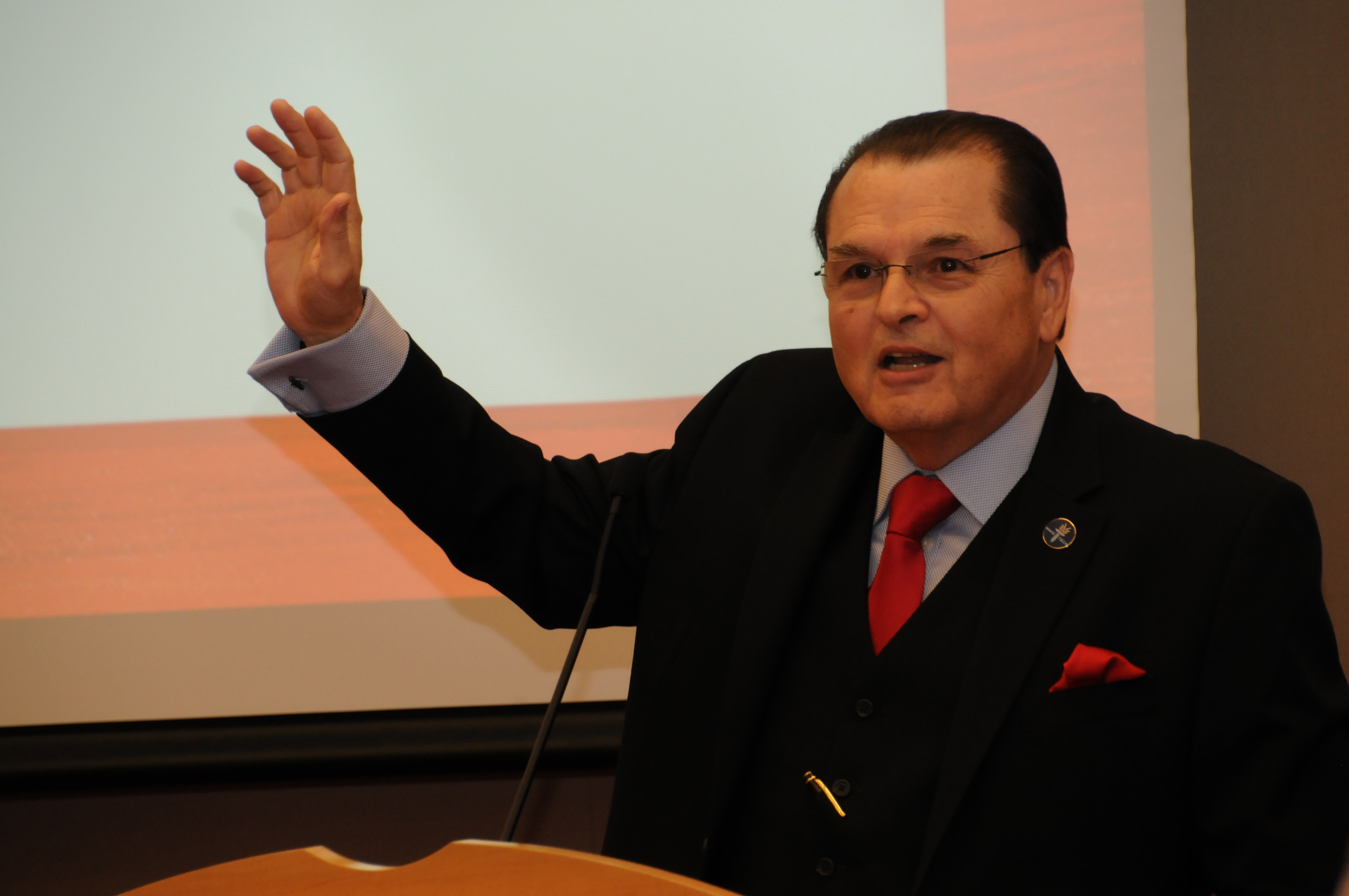Cultivating Community College Success

Effective community college instruction begins with teachers who can relate to their students on a personal level, Wake Technical Community College (WTCC) President Dr. Stephen Scott said in the keynote address at the College of Education’s third annual Scholar-Practitioner Symposium.
The Scholar-Practitioner Symposium is an opportunity for graduate students, scholars and academic professionals to present research on topics ranging from educational leadership and policy issues to improving the higher education experience for university and community college students.
“One of the things that students need to know is that people like themselves can achieve,” Scott noted in his talk on “Leadership, Research and Innovation: Leading a 21st-Century Community College.”
Scott, a 40-year education veteran, said that connecting to several community college presidents at an early age set him on a pathway to success. His experience and exceptional leadership have led WTCC to become the largest of North Carolina’s 58 community colleges and the fastest-growing large community college in the country. He also serves on the advisory board for NC State’s Envisioning Excellence for Community College Leadership, a project designed to strengthen community colleges by developing exceptional leaders.
Higher education professionals must also cultivate success through continuous improvement efforts — what Scott calls “applied benchmarking.” This method requires addressing problems by gathering knowledge from expert sources, developing metrics to continually evaluate initiatives, and using knowledge to create real-world solutions.
Knowledge without action is no better than no knowledge at all,” Scott said.
WTCC used applied benchmarking to pursue opportunities to better serve its students. In 2015 the institution received a $1.7 million grant from the U.S. Department of Education to increase student completion rates and transfers to four-year colleges and universities. WTCC now also delivers approximately 25 percent of its instruction online in order to better align services with student needs.
Following Scott’s address, College of Education graduate students and faculty showcased the results of their research on topics related to educational creativity, innovation and technology, along with diversity and social justice in the classroom. Presenters were challenged to highlight their knowledge Pecha-Kucha style, communicating scholarly research in 20 seconds-per-slide, 20-slide presentations.
The Symposium was sponsored by the College of Education’s Department of Educational Leadership, Policy and Human Development, NC State’s Division of Academic and Student Affairs, Duke University Student Affairs, The William & Ida Friday Institute for Educational Innovation, and the National Initiative for Leadership and Institutional Effectiveness (NILIE).
- Categories:


